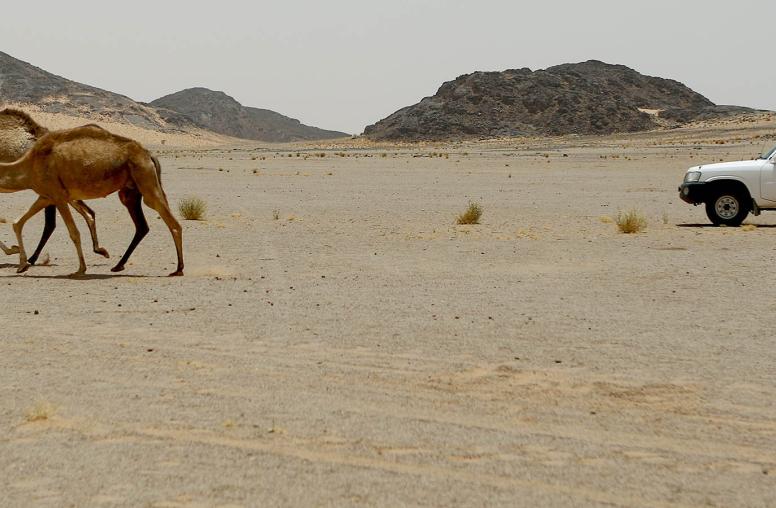Algeria’s Constitutional Council announced over the weekend it would cancel elections planned for next month in response to demands from protesters. Although such delays are often criticized, there are often good reasons to postpone an election in countries at risk of violent conflict. The security situation may complicate the logistics or put poll workers and voters at risk; heated campaigns may risk escalating communal tensions and endanger candidates; or conditions for a fair campaign may simply not be in place amid a state of emergency. At the same time there are risks associated with postponing a voting process. Along with Algeria, other recent examples from Afghanistan, Libya, and the Democratic Republic of the Congo (DRC) highlight this dilemma.

Minimum security standards need to be in place to hold free and fair elections, allowing the electorate and candidates to safely participate in the vote. Elections present an opportunity for armed groups or violent extremist organizations in their efforts to undermine a government or democratic processes.
The October 2018 parliamentary election in Afghanistan, to take one example, was tainted by attacks against police, polling stations, campaign events, and voters, despite the deployment of 70,000 Afghan security forces to ensure election security. The country’s presidential election was originally scheduled for April 2019 but has already been postponed twice by Afghan authorities due to security concerns and persistent challenges with the voting system.
Last year, France long pushed to respect an end-of-year timeline for elections in Libya, despite the gradually worsening security situation. But under no circumstances are elections still feasible as the conflict recently escalated once again. The United Nations is pushing ahead its mediation efforts in the hope of producing a roadmap for national elections. But the international community remains divided, with France, Russia and several other countries supporting Field Marshal Khalifa Haftar who has led the offensive against the ruling body in Tripoli.
Research by Thomas Flores and Irfan Nooruddin shows that a growing percentage of elections are organized in the context of violent conflict and ethnic strife—if held too soon after the “conclusion” of conflict, elections are likely to trigger renewed violence. As a result, elections have become less associated with progress and democracy in many parts of the world.
In conflict zones, elections can unleash dark forces and become a win-or-die affair, with little space for compromise or collaboration. So why hold elections when they may trigger or further escalate violence?
The Case Against Postponements
Even in complicated security environments there are good reasons to withstand the temptation to postpone elections.
Elections are often prescribed in national law or peace agreements as a recognized exercise to organize the transition of power. Even in countries at risk of violence, citizen participation in elections remains a human right that serves as the foundation of the social contract between the people and its government. The possibility of postponing elections also creates perverse incentives, as incumbents may be very comfortable extending their rule.
Politicized election management bodies have refused to organize proper elections in Thailand. In the DRC, former President Joseph Kabila long claimed that the country was not ripe for elections, exceeding his term by over two years. And in Chad, President Idriss Deby argued that polls could not be held before 2019 since the country did not have the necessary financial means.
The Case for Postponing Elections in Algeria
Every case needs to be determined on an individual basis. In Algeria, the Constitutional Council was right to cancel elections that were scheduled to be held on July 4 even though the same dilemma emerged. The risk of widespread violence is certainly remote in Algeria, compared to Libya, Afghanistan or the DRC. But in Algeria, the postponement was demanded by the people, not the regime.
The resignation of Bouteflika and the announcement of new elections had not satisfied protesters who fear that the conditions for a fair and transparent transition were not in place. They are demanding a complete overhaul of “le système” and rejected the planned vote. The army and political elite have now decided not to hold the election.
Confrontations between protesters and the Algerian armed forces have been largely peaceful thus far, but that could change if future elections are not managed to meet popular expectations. An independent election management body needs to ensure a transparent and inclusive process. Security forces need to ensure public safety, while leaving space for peaceful protest and campaigning. Domestic and international observers need to assess the quality of electoral processes, and report both irregularities and violent incidents as they may undermine the integrity of elections. For the past 20 years, Algerians have not been able to hold political parties and candidates accountable. Managing expectations—of both candidates and their constituents—will be critical to Algeria’s transition.
The decision to postpone an election needs to be made on an individual basis, ideally by an independent election body concerned about legitimate security or logistical challenges. Changing the electoral timetable could serve electoral purposes, so it is critical to resist postponing elections if the conditions for peaceful and credible elections are in place.



